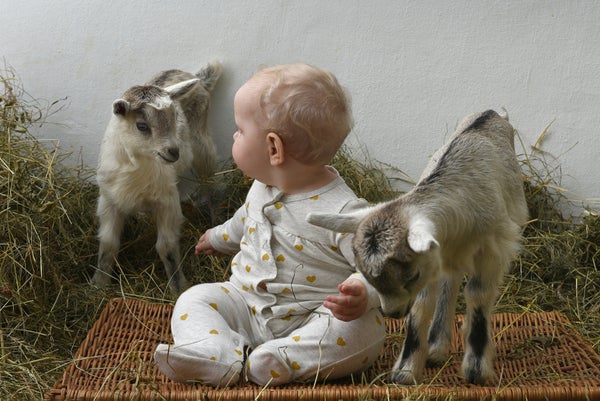Babies Smell Sweet, but Teenagers Stink. Is Evolution the Explanation?
Carboxylic acids make teens give off a pungent olfactory mix redolent of cheese, plum and even goats
HAndrii/Getty Images
Teenagers have a reputation for smelling, well, just a tad bit funky. According to the latest research, that stereotype might be more than habitual adult bias against the teen cohort—it could actually be rooted in solid science.
In a study published on March 21 in the journal Communications Chemistry, researchers characterized the chemical makeup of Essence of Teen and compared it with the smell composition of infants and toddlers. They found that, from both a qualitative and quantitative standpoint, children’s body odor takes a dramatically smelly turn after the onset of puberty. And there may be a good evolutionary reason for this shift.
Helene Loos, an aroma researcher at the Friedrich-Alexander University of Erlangen-Nuremberg in Germany and senior author of the new paper, began this research by attempting to pinpoint the cause of that fragrance change. She and her team first collected body odor samples from 18 infants and toddlers and 18 teenaged children. Then they analyzed the samples in the lab to determine what scent chemicals were present in each sample. They also combined their findings with a previous survey of 270 families that had indicated that parents found babies’ body odor much more agreeable than that of teenagers.
On supporting science journalism
If you’re enjoying this article, consider supporting our award-winning journalism by subscribing. By purchasing a subscription you are helping to ensure the future of impactful stories about the discoveries and ideas shaping our world today.
The researchers discovered pleasant citrusy and soapy-smelling aldehydes in the body odor samples from both age groups. In the underarm sweat of teens, however, Loos and her colleagues found a higher concentration of carboxylic acids—compounds…
Read the full article here







